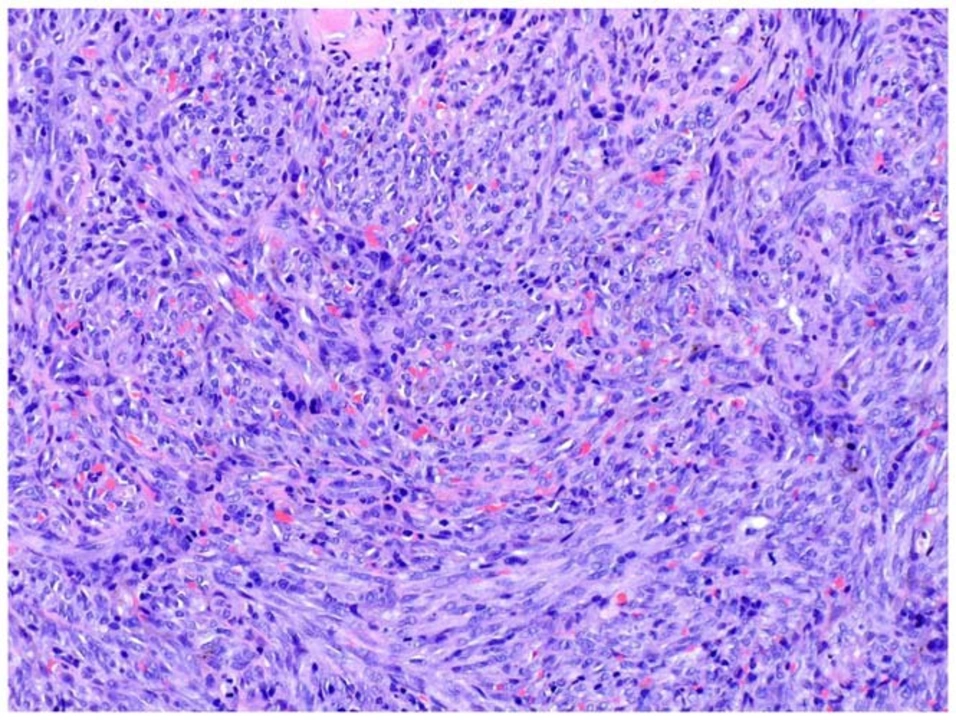Kaposi Sarcoma and Body Image: Navigating Physical Changes
 May, 27 2023
May, 27 2023
Understanding Kaposi Sarcoma and Its Impact on Body Image
Kaposi Sarcoma (KS) is a form of cancer that occurs when cells lining the blood vessels or lymphatic vessels grow uncontrollably. This mainly results in the appearance of abnormal skin lesions, which can have a significant impact on a person's body image and self-esteem. In this article, we will explore how Kaposi Sarcoma affects body image and provide guidance on navigating the physical changes that come with this diagnosis.
Recognizing the Physical Changes Caused by Kaposi Sarcoma
One of the most notable physical changes that occur with Kaposi Sarcoma is the presence of skin lesions. These lesions can vary in size and color, ranging from small, flat spots to raised, dark purple or brown nodules. They can appear anywhere on the body, including the face, mouth, and genital area.
Depending on the location and appearance of the lesions, they can be quite noticeable and may cause significant distress for those affected. In addition to skin lesions, KS can also cause swelling in the arms, legs, and face due to lymphatic fluid buildup. This can create a distorted appearance and further impact an individual's body image.
Managing Visible Lesions and Other Physical Changes
It is essential to address the physical changes brought on by Kaposi Sarcoma for both medical and emotional reasons. In some cases, treating the cancer itself can help reduce or eliminate the lesions. This may involve chemotherapy, radiation therapy, or other targeted treatments.
However, in situations where the lesions persist or are not responsive to treatment, there are several strategies to help manage their appearance. These can include using makeup or concealers to cover visible lesions, wearing clothing that provides coverage, and exploring options for medical tattooing to camouflage the affected areas. Additionally, working with a dermatologist can help identify effective skincare routines to maintain the health and appearance of the skin.
Addressing Emotional Challenges and Building a Support System
Dealing with the emotional challenges of Kaposi Sarcoma and its impact on body image is equally as important as addressing the physical changes. It is crucial to recognize that feelings of grief, anger, and frustration are normal and valid responses to these changes. Talking to a therapist or counselor can provide valuable support and guidance on processing these emotions and developing coping strategies.
Furthermore, building a support system of friends, family, and other individuals going through similar experiences can make a significant difference in managing the emotional aspects of KS. This can be achieved through joining support groups, participating in online forums, and attending local events geared towards cancer survivors and patients.
Practicing Self-Acceptance and Focusing on Holistic Well-Being
Lastly, it is essential to practice self-acceptance and focus on holistic well-being when navigating the physical changes caused by Kaposi Sarcoma. This means acknowledging and accepting the changes in one's body while also prioritizing physical, mental, and emotional health.
Engaging in activities that promote relaxation and stress relief, such as meditation, yoga, or journaling, can be beneficial for overall well-being. Additionally, maintaining a healthy diet and exercise routine can help boost self-esteem and improve overall health. It is crucial to remember that self-worth is not solely defined by physical appearance, and there is immense value in cultivating a strong sense of self that goes beyond the changes Kaposi Sarcoma may bring.
In conclusion, navigating the physical changes caused by Kaposi Sarcoma can be challenging, but it is possible to manage these changes and maintain a positive body image. By addressing the physical and emotional aspects of this diagnosis, building a strong support system, and practicing self-acceptance, individuals with Kaposi Sarcoma can continue to live fulfilling and healthy lives.

Georgia Green
May 29, 2023 AT 10:18also, don’t let anyone tell you to ‘just cover it up’ - that’s not the point. the point is you still get to be you, even if your skin looks like a watercolor painting gone wrong.
Christina Abellar
May 29, 2023 AT 11:41Eva Vega
May 30, 2023 AT 22:34Matt Wells
June 1, 2023 AT 21:18Margo Utomo
June 2, 2023 AT 23:43you’re not broken. you’re not ugly. you’re not a mistake.
you’re just living with a disease that doesn’t get enough love in pop culture. and guess what? you’re still the main character. 💪💜
George Gaitara
June 4, 2023 AT 15:15Deepali Singh
June 5, 2023 AT 13:33Sylvia Clarke
June 5, 2023 AT 22:27Also, medical tattooing? That’s not camouflage. That’s art. And art is rebellion. 🖋️🖤
Jennifer Howard
June 7, 2023 AT 13:28Abdul Mubeen
June 8, 2023 AT 05:08mike tallent
June 9, 2023 AT 23:17the first time i wore a tank top after my lesions showed up, i cried in the bathroom. but then i went out and bought a bright red hat and danced in the grocery store.
you don't have to be ‘brave.’ you just have to be you. even if you're covered in purple. even if you're tired. even if you're scared.
we see you. 🌈💪